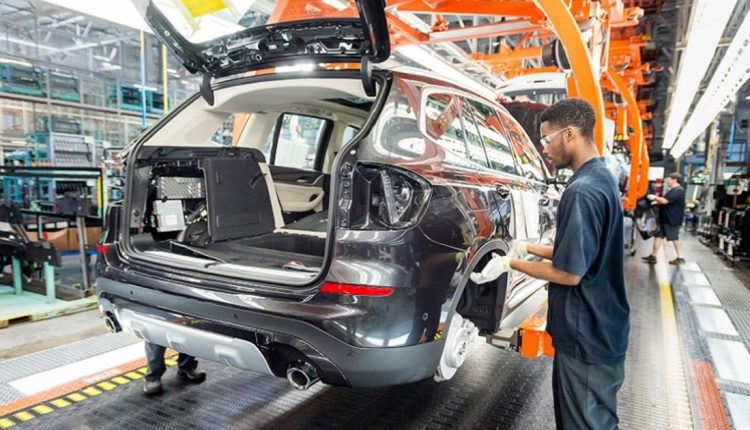GREER, S.C. — BMW is upgrading the jewel in its global manufacturing crown to position the 7-million-square-foot crossover factory for the electric era.
On Wednesday, the German performance brand announced a $1.7 billion investment to build at least six battery-powered models at the facility in Greer, S.C., by 2030.
The project includes domestic sourcing of next-generation batteries and a $700 million battery-pack assembly plant to be built in nearby Woodruff, S.C. It also requires construction of a new battery-cell plant in the state by Japanese battery-maker Envision AESC, although few details on that part of the project have been disclosed.
“With this latest investment, we future-proof our operations and prepare the plant for electrification and new technologies,” BMW Manufacturing Co. CEO Robert Engelhorn said in a statement.
BMW did not reveal which electric models it will build at the plant — the automaker’s largest in the world.
But according to AutoForecast Solutions, U.S. production of the battery-powered iX5 crossover should start in late 2026, followed by the iX7 a year later. Production of the iX6 and iXM crossovers could begin in 2028.
Established three decades ago, the factory, near Spartanburg, S.C., builds BMW’s high-volume, high-margin X-line of crossovers. Annual capacity at the sprawling facility is 450,000 vehicles.
The export hub was prioritized during the pandemic and ensuing semiconductor shortage, enabling it to crank out record volumes last year.
“Plant Spartanburg has been a cornerstone of the global success of the BMW Group,” BMW Group CEO Oliver Zipse said. “The ‘home of the X’ is also becoming the ‘home of the battery-electric vehicle’.”
BMW will build the EVs in the assembly hall that currently builds the X3 and X4. Retooling will begin in 2024 and the first new vehicles will start production in 2025.
The plant will see an expansion that will increase its total square footage by about a third, and annual production capacity will rise from about 180,000 vehicles currently to 290,000 following the investment.
The new production center will be capable of building EVs, ICE and even hydrogen vehicles.


